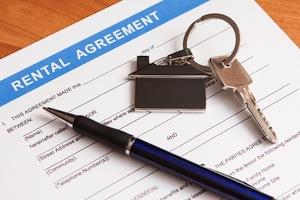Residential Landlord Tenant
South Florida Residential Landlord Tenant Lawyers

Our law firm regularly handles residential landlord/tenant cases for landlords and sophisticated tenants in Broward and Miami-Dade County. Our twofold experience in residential/landlord tenant cases working for both property owners and tenants puts us in a unique position to understand the legal strengths to pursue and weaknesses to avoid in landlord/tenant lawsuits.
Florida Residential Landlord/Tenant Law
With the ever-increasing number of foreclosures and growing desire to avoid the weight and responsibility of a mortgage, more individuals have decided to enter into residential leases. At the same time, investors seeking to maximize their real estate holdings are also buying rental properties for the first time in an effort to capitalize on rising rental rates. Whether our clients fall on one side of this fence or the other, the critical factor to appreciate is that the Courts in Florida strictly construe the landlord/tenant statutes. Therefore, getting it halfway right simply doesn’t work when it comes to landlord/tenant law, no matter whether you are a landlord or a tenant. Considering the high dollar residential property that frequently becomes the subject of landlord/tenant cases in Miami-Beach, Coral Gables, Brickell, Pinecrest, Weston, and other affluent communities in South Florida, our law firm believes that each case must be handled correctly the first time around.
A Brief Overview of Florida’s Residential Eviction Process
The first step in a residential eviction is to for the landlord to serve the tenant with a notice to pay or vacate. If a tenant has not paid the rent, the Landlord is required to give the tenant a three-day notice in writing to vacate the premises or pay rent.
It is not uncommon for landlords or their agents to improperly ask tenants for more money than is owed under the guise of “late fees”, “administrative fees” etc … or to improperly calculate the rent due date. In the eyes of many judges, these issues are enough to result in a delay or even dismissal of the eviction.
The next step in the residential eviction process is for the landlord to file and serve an eviction complaint. After the tenant receives the complaint, they have as little as five (5) days to respond to the eviction action or face a default (i.e. the loss of the right to defend the eviction action). If the tenant files a written response, the court will set a hearing on the case where both the landlord and tenant can argue their case. If the tenant does not respond, the landlord may ask the Court to enter a default judgment in the landlord’s favor. If a judgment is entered, but the tenant still fails to leave, the landlord has the right to ask the Sherriff’s Department to evict the tenants by serving the writ of possession.
Abandonment
Unfortunately, eviction does not break all legal ties between landlord and tenant. A former tenant may still make claims against their landlord for the return of a security deposit or advance rent. The landlord likewise may assert a claim for past-due or accelerated rent, damages, or costs. Therefore, while landlord tenant law may look like a straightforward process, it is always advisable to hire an experienced residential landlord tenant lawyer to advocate for your best interests.
For a free consultation with an experienced residential landlord tenant lawyer in Miami-Dade or Broward County, please contact our law firm at 305-501-2836.












